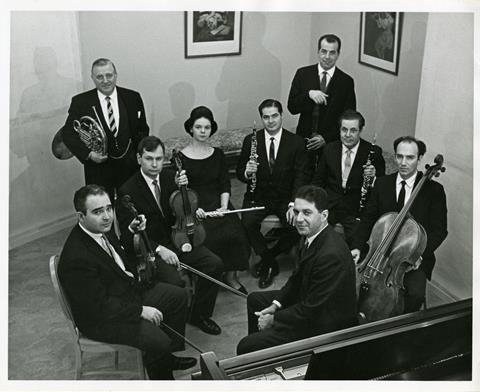Burton Fine was principal violist of the Boston Symphony Orchestra for nearly 30 years; he also had a doctorate in physical chemistry and worked as a rocket scientist

The US violist Burton Fine has died at his home in Newton, Massachusetts, at the age of 94. He served as principal violist of the Boston Symphony Orchestra for 29 years until 1993, and subsequently played in the section until his retirement in 2004.
Fine also obtained a doctorate in physical chemistry in 1955, at the age of 24, from the Illinois Institute of Technology. Before launching his professional musical career, he worked for the institution that would shortly become known as NASA (National Aeronautics and Space Adminstration).
Born in 1930, Fine initially studied violin with Ivan Galamian and graduated from the Curtis Institute of Music when he was 18. He continued playing violin in a string quartet during his years as a chemistry student.
‘I worked on problems of aircraft and space propulsion,’ Fine said in an interview with The New York Times about the trajectory that led to his appointment as Boston’s principal violist. ‘But I’m not a research man, I’m not an original thinker in the field. I always knew my career would be in music.’
His first professional musical post was as a violinist with the BSO, which he joined in 1963. He meanwhile auditioned for the principal viola position when it was announced that year that Joseph de Pasquale, at the request of Eugene Ormandy, would move to the Philadelphia Orchestra in 1964.
On her blog ‘Musical Assumptions’, daughter Elaine Fine, a flautist and composer, wrote that her father launched his musical career when ‘he saw an ad in International Musician one day, took the next day off to practice, flew to Boston, and won the audition. My mother didn’t think he would get the job, but she reluctantly left Cleveland when he did.’
Fine’s son Marshall also became a violist and was additionally a prolific composer. He served as assistant principal violist of the Memphis Symphony Orchestra until his tragic death as the result of a car crash in 2014.
Along with scientific papers he published in the journal Combustion and Flame, Burton Fine won a composition prize as a child in his native Philadelphia and initially wanted to study composition with Giancarlo Menotti before switching his focus to violin.
He was, writes Elaine Fine in her memorial post, ‘a person of tremendous intelligence and tremendous integrity who expressed himself musically in the most elegant ways’.
Read: IMS Prussia Cove co-founder Hilary Tunstall-Behrens dies aged 97
The number one source for playing and teaching books, guides, CDs, calendars and back issues of the magazine.
In The Best of Technique you’ll discover the top playing tips of the world’s leading string players and teachers. It’s packed full of exercises for students, plus examples from the standard repertoire to show you how to integrate the technique into your playing.
The Strad’s Masterclass series brings together the finest string players with some of the greatest string works ever written. Always one of our most popular sections, Masterclass has been an invaluable aid to aspiring soloists, chamber musicians and string teachers since the 1990s.
The Canada Council of the Arts’ Musical Instrument Bank is 40 years old in 2025. This year’s calendar celebrates some its treasures, including four instruments by Antonio Stradivari and priceless works by Montagnana, Gagliano, Pressenda and David Tecchler.













































No comments yet